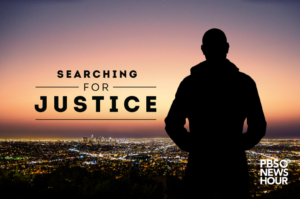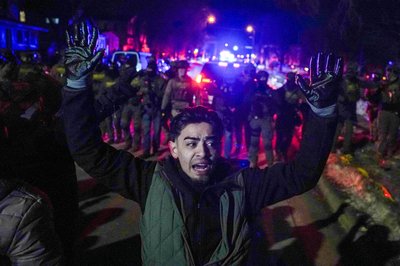Summary
The United States has the highest rate of incarceration based on population. Part of it is due to an overwhelmed, underfunded system in both prosecutors' and public defenders' offices. As Fred de Sam Lazaro reports, one initiative is trying to bring more legal resources to those incarcerated or facing trial. It's part of our series Agents for Change and Searching for Justice. For a transcript of this story,
click here
.
Key terms
-
prison law pipeline program
— a
program that uses waivers from the American Bar Association to admit two incarcerated students per year into law school.
-
The Legal Revolution
—
a movement to structurally transform the legal discipline through a series of legal initiatives that center racial equity, mental health and the expertise of those most impacted by the law.
-
plea bargains
—
an arrangement between prosecutor and defendant whereby the defendant pleads guilty to a lesser charge in exchange for a more lenient sentence or an agreement to drop other charges.
-
felony
—
a crime, typically one involving violence, regarded as more serious than a misdemeanor, and usually punishable by imprisonment for more than one year or by death.
-
appeals
—
a legal proceeding by which a case is brought before a higher court for review of the decision of a lower court.
Five Facts
-
What
is the prison law pipeline?
-
Where
is the prison law pipeline initiative taking place?
-
Who
is the prison law pipeline initiative impacting?
-
How
do
incarcerated law students humanize the law, according to this story?
-
Why
is it important to empower incarcerated individuals, according to this story?
Focus Questions
What do you think Emily Hunt Turner (interviewed in this story) means when she says,
“At the end of the day, education and being in community, being in relationships are through and through proven to be the best mode of transformation”?
Media literacy:
Who else would you want to hear from to understand the prison law pipeline?
For More
What can students do:
Students can research how the prison
law pipeline initiative is trying to remediate the damage caused by the school to prison pipeline and other inequities in the justice system.
This story is part of NewsHour’s “
Searching for Justice
” Series. Searching for Justice explores criminal justice reforms unfolding across the country, as the leaders from both sides of the political aisle attempt to end mass incarceration by rethinking laws that some say have become barriers to work, housing, and economic stability.
Click here
for more stories and the series and watch for more NewsHour Classroom lesson content based on Searching for Justice stories.






